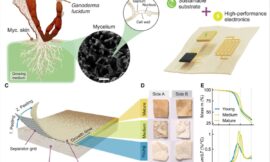New research has examined whether physical attractiveness can predict selfish and self-serving behaviors in people.
Do we confuse beauty with goodness? The “beautiful is good” theory suggests that we tend to judge attractive people more favorably and attribute virtues to them that they may not possess, and that this causes them to confirm the stereotype by behaving positively. However, evolutionary theory suggests that, because of their physical advantages, attractive individuals are more likely to feel entitled and behave selfishly.
A recent series of studies published in Evolution and Human Behavior has examined whether physical attractiveness predicts altruistic or self-interested behavior. Previous research shows that physical beauty is linked to physical and mental health, positive relationships, and social success. For example, in addition to having better mental health than others, beautiful people tend to consider themselves psychologically healthier, more balanced and intelligent. According to the beautiful is good theory, beautiful people also tend to behave better than average, for example, more altruistically and selflessly.
This is explained because beautiful people are often perceived in a very positive way, as more likeable, prosocial and intelligent. In this way, attractive people behave as expected of them, in a more benevolent, competent and altruistic way.
But this is not in line with the evolutionary theory of attractiveness, which suggests that attractiveness is associated with selfish behavior, possibly due to a feeling of entitlement than others, and a feeling that one deserves special treatment.
Why do attractive people feel more entitled? Because they have greater bargaining power in relationships. Attractive people tend to have evolutionary advantages (stronger, healthier, and more fertile) and thus are able to provide these benefits to their romantic partner. Thus, beautiful people, being aware of their high social value, learn from an early age that they deserve special treatment and privileges.
The researchers conducted five studies with more than 1,300 people exploring whether self-perceived attractiveness is associated with greater selfish or, conversely, disinterested behavior.
In the first study, attractiveness was positively associated with tendencies to behave selfishly and feel entitled to more than others. This feeling of deserving special treatment could explain people’s inclination to act selfishly. In the second study, it was verified what the real interested behaviors were, and the participants who perceived themselves as more attractive allocated more resources thinking that they deserved it.
In the third study, participants were encouraged to feel that they deserved more than others. The result was that the participants with low self-perceived attractiveness behaved in a more interested way.
In the last two experiments, the researchers manipulated the self-perceived attractiveness of the participants, increasing it by comparing them to other unattractive people, in a public or private setting. The results indicated that as perceived attractiveness increased, both selfish intention and actual self-interested behaviors also increased. However, when the acts were made public, attractiveness ceased to influence interested behavior, perhaps because it was now a priority to make a good impression. Previous research shows that this strategic behavior is especially common among people who are dishonest, arrogant, or narcissistic.
The results coincide with previous findings that suggest that, compared to less attractive people, handsome individuals are more self-serving, selfish, and believe they belong to a privileged social class. They take advantage of social opportunities for their own benefit, regardless of the cost to others. All this confirms the evolutionary point of view rather than the theory that beautiful is good.
Beauty is usually indicative of evolutionary advantages and therefore desired. This changes the behavior of attractive people, who realize they have greater bargaining power, feel more entitled, and behave selfishly. However, for them this is not being selfish, they just expect the respect they deserve for being beautiful.


